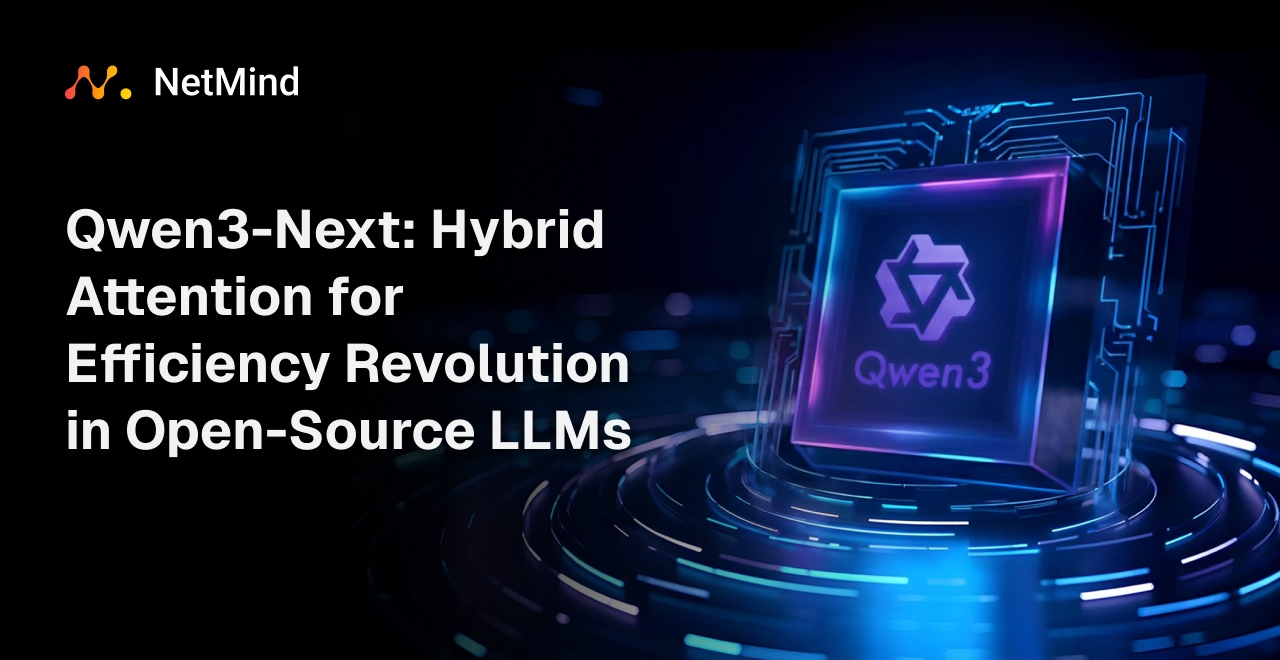Qwen3-Next: Hybrid Attention for Efficiency Revolution in Open-Source LLMs (New Research Breakdown)

Traditional large language models (LLMs) are computationally expensive and often inefficient, especially when scaling to long contexts or sparse activation. Qwen3-Next-80B-A3B, released by Alibaba, introduces a radically more efficient architecture—achieving 90% lower training costs and 10× faster inference while outperforming peers in benchmark tests. This leap is powered by four core innovations.
The Four Pillars of Innovation
-
Hybrid Attention Architecture: Combines Gated DeltaNet (75%) and Gated Attention (25%) across layers. This hybrid design balances speed and accuracy, allowing native support for up to 262K tokens, expandable to 1M.
-
Ultra-Sparse Mixture of Experts (MoE): Activates only 3.7% of total parameters per token (3B out of 80B), using 10 routed + 1 shared expert from a pool of 512. Compared to traditional MoE models, Qwen3-Next achieves superior throughput and lower latency with fewer active parameters.
-
Advanced Stability Optimizations: Introduces Zero-Centered RMSNorm, replacing QK-Norm, to improve training stability. Normalizes MoE routing to prevent bias in expert activation. These changes solve long-standing numerical instability issues in sparse models, enabling both small-scale experimentation and large-scale deployment.
-
Multi-Token Prediction (MTP): Enhances speculative decoding by predicting multiple tokens per step. Improves inference speed and backbone performance through multi-step training aligned with inference. Results in smoother, faster generation for tasks like chat, code, and long-form writing.
Why It Matters?
Qwen3-Next sets a new benchmark for architectural efficiency. Its innovations in attention, sparsity, stability, and decoding offer a blueprint for future LLMs that prioritize performance without bloated compute requirements. Qwen3-Next is open-sourced and supports vLLM, SGLang, and OpenAI API formats. With low-cost APIs and Hugging Face availability, it’s ideal for building efficient, long-context applications. The model’s sparse activation and hybrid attention make it deployable even on modest hardware.
Read more at: blog.netmind.ai
2025-09-22